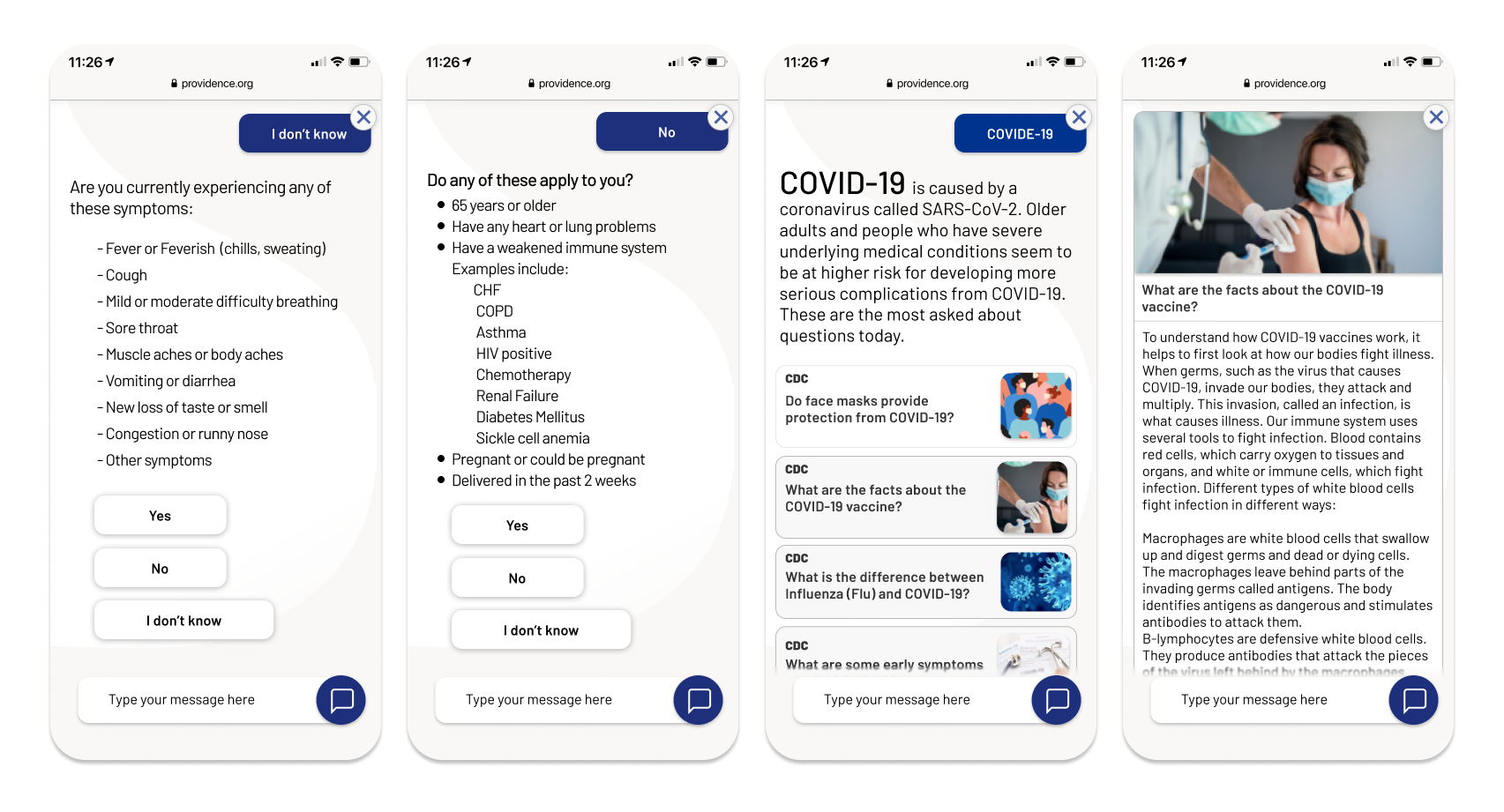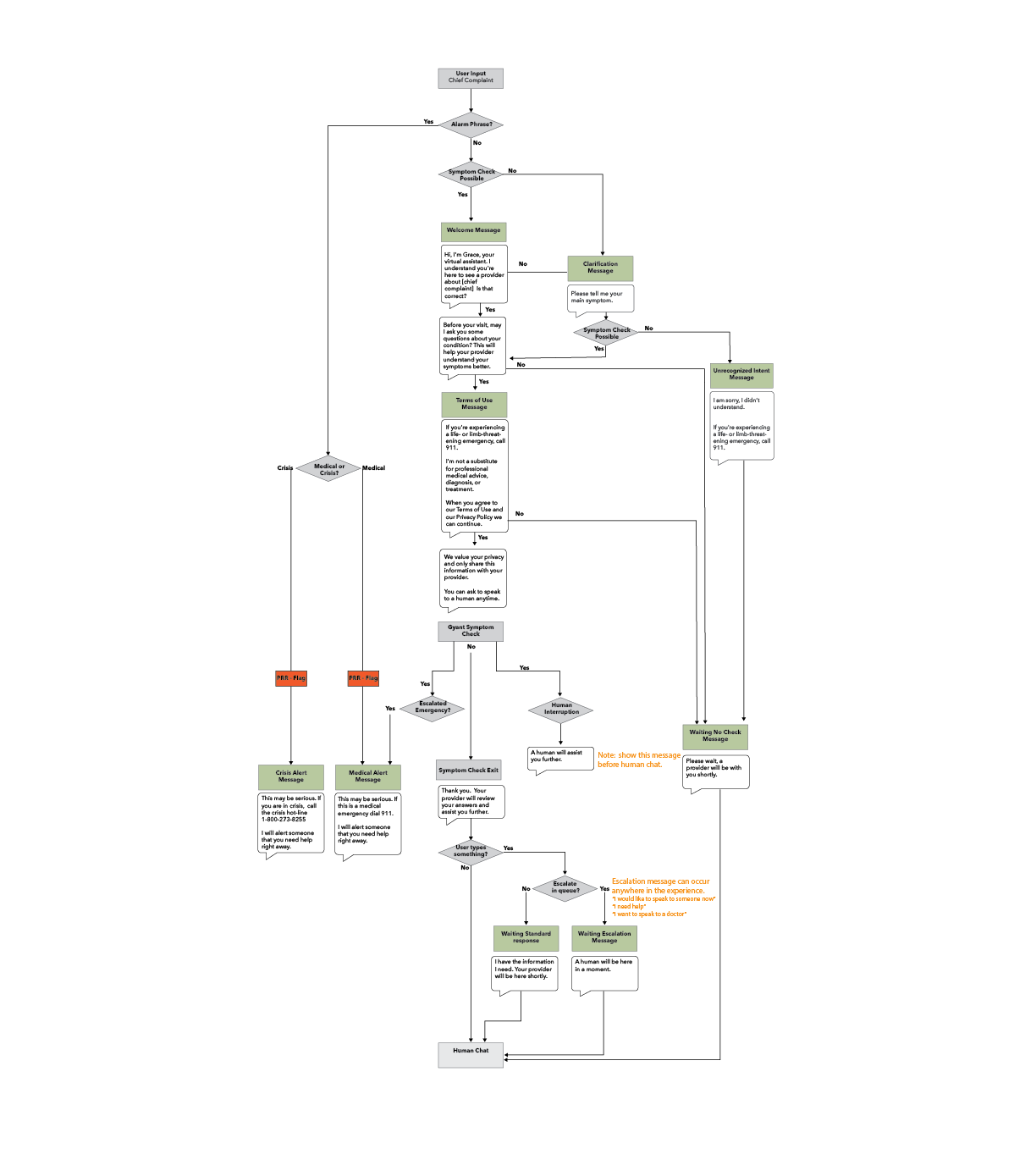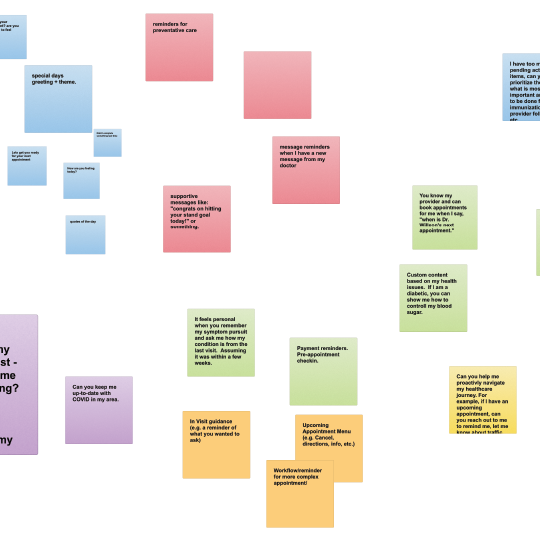provider experience
On the left is the patient medical record and demographic information. In the middle is a log of the chat with the patient and on the right is the AI generated diagnostic of the symptoms the patient is experiencing. There is a feedback loop for the doctor to let the team know how useful the AI was. A functional prototype was built in Figma.

patient experience
The health assistant is a white label chat experience. These images are of design studies of the customer-facing experience with Providence branding. The features displayed are the symptom diagnostic and the FAQ. This bot was built on Microsoft bot framework. Design studies and a functional prototype were built in Figma.

CI design
The flow diagram shows the conversation interaction design. Scenarios covered were when a patient asked to speak with a human, when the reason for the visit was not understood, and when serious symptoms are reported. Serious symptoms or alarm phrases are flagged to alert staff of a problem.

how we gained insight

stakeholder interviews
Working with a researcher, we conducted on-site customer interviews and learned about pain points and opportunites.

focus group
From several focus groups we learned about the persona for the health assistant. We learned what features they expected to find and why they would choose the assitant over another option.

collaborate
Brainstorming sessions with the team revealed opportunities for personalization. We captured our ideas on a virtual whiteboard, and this helped us collaborate remotely.










